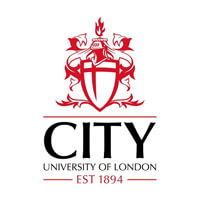fees waived
Economics with Accounting, BSc (Hons)
City, University of London, United Kingdom
Subject ranking
UK / ARWU 2024 5th
UK / Times 2025 5th
UK / CUG 2024 13th
Costs
food & rentS$25.1K / year
Entry requirements
Scholarships
Limited quantity
Information
Code
Intakes
Website (External)
Programmes
Information
Duration
2028
This degree emphasizes the practical integration of economic theory with real-world applications, focusing on mathematics, statistics, and professional accountancy skills. Students will develop expertise through core modules in economics and accounting, while gaining exemptions from professional exams by bodies such as CIMA, ACCA, and ICAEW. Learning from experts in the Department of Economics and Business School, participants build quantitative skills and benefit from placements with organizations like PriceWaterhouseCoopers, leading to careers at firms such as KPMG and Deloitte, or advanced studies at institutions like LSE and Oxford.The curriculum spans three years, beginning with foundational concepts in financial and management accounting, microeconomics, and data analysis, progressing to intermediate and advanced topics in econometrics, corporate finance, and company law. Assessment primarily involves coursework, including essays, presentations, and exams, alongside electives in areas like international finance. The program is accredited by the Institute of Chartered Accountants in England and Wales, ensuring recognition in the industry.
Year 1 Develop an understanding of the underlying concepts and principles associated with economics and accounting. Build on your current mathematics knowledge, either post-GCSE or post-A level. Core Modules: Introduction to Financial Accounting Introduction to Management Accounting Introduction to Microeconomics Introduction to Macroeconomics Data Analysis 1 Data Analysis 2 Introduction to Law Elective Modules: Mathematics for Economists Post GCSE 1 Mathematics for Economists Post GCSE 2 Mathematics for Economists Post A Level 1 Mathematics for Economists Post A Level 2 Year 2 Deepen your knowledge through core modules in economics and accounting. Develop your skills of enquiry and understanding of the different approaches to problem solving. Core Modules: Intermediate Financial Accounting 1 Intermediate Financial Accounting 2 Intermediate Microeconomics 1 Intermediate Microeconomics 2 Intermediate Macroeconomics 1 Introductory Econometrics Elective Modules: Intermediate Macroeconomics 2 Intermediate Econometrics History of Economic Thought Nations and Firms in the Global Economy Year 3 Strengthen your accountancy expertise with core modules covering topics related to accountancy and financial management, including a module in company law. Further develop your techniques for practise and pursue your own academic or professional interests with elective modules. Core Modules: Management Accounting Financial Management Advanced Financial Accounting: Theory and Practice Financial Analysis Corporate Finance Company Law Elective Modules: Introduction to Financial Derivatives Applied Econometrics Industrial Organisation International Finance Experimental Economics Economics and Society Micro-Placements Industry Projects Summer Internship Integrated Professional Training Modules are subject to change.

